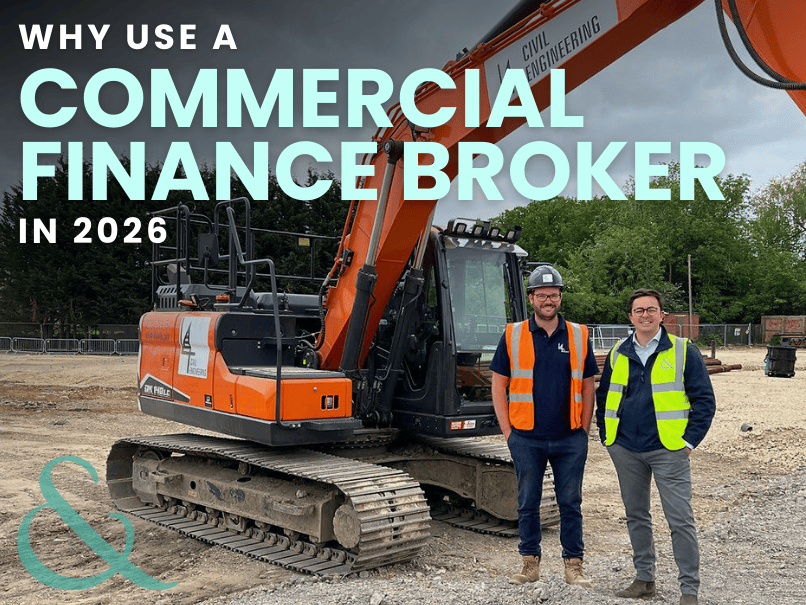Table of contents
From Cash Flow Pressure to Confident Planning
VAT: A Common Pressure Point for Growing Businesses
For UK businesses, Value Added Tax (VAT) obligations can place significant pressure on cash flow, especially when quarterly deadlines compete with day-to-day operational needs or long-term investment plans. During the pandemic, government support schemes offered temporary relief, revealing just how impactful payment flexibility can be for business resilience.
With government emergency measures now firmly in the past, businesses must find smarter, more sustainable ways to manage their VAT obligations. Strategic finance has become essential - not just to meet HMRC deadlines, but to maintain cash flow and unlock growth.
Today, understanding the full range of VAT loan options is key. These commercial solutions offer the flexibility once provided by government schemes, but with the structure and reliability needed for long-term financial planning and compliance.
Understanding VAT: The Basics Behind Your Obligations
What is VAT and How Does it Work?
Value Added Tax (VAT) is a consumption tax applied at each stage of the supply chain - covering production, distribution, and final sale. In the UK, the majority of goods and services fall under one of three VAT rates:
-
Standard Rate - 20% (most goods and services)
-
Reduced Rate - 5% (items such as home energy and children’s car seats)
-
Zero Rate - 0% (including most food and children’s clothing)
If your business is VAT-registered, you’re responsible for collecting VAT on behalf of HMRC and submitting payments quarterly. You’ll usually pay the difference between the VAT you’ve charged your customers and the VAT you’ve paid on eligible business purchases. Payment is typically due one month and seven days after the end of each VAT quarter.
When to Register for VAT
You must register for VAT if your taxable turnover exceeds £90,000 in the last 12 months, or if you expect it to exceed this threshold in the next 30 days. You may also choose to register voluntarily if your turnover is below this threshold.
VAT Schemes and Payment Methods
To support different business models, HMRC offers a range of VAT accounting methods:
-
Standard Accounting: VAT is calculated based on invoice dates, not actual payments - meaning you may owe VAT before receiving payment from customers, potentially tightening cash flow
-
Cash Accounting Method: VAT is based on money received and paid, making it easier to manage cash flow - especially for businesses with delayed customer payments.
Understanding The Product: VAT Loans
What is a VAT Loan?
A VAT loan is a short-term, purpose-built finance solution designed to help UK businesses meet their quarterly VAT payments to HMRC on time and without cash flow disruption. Acting as a financial safety net, VAT loans support businesses that may not have the cash reserves to cover their VAT obligations in full.
Unlike general business loans, VAT finance is specifically structured to cover tax payments, giving businesses the flexibility to stay compliant while preserving working capital for day-to-day operations or strategic growth.
How VAT Loans Work in Practice
When you secure a VAT loan, the process typically works as follows:
-
Application: You apply to a bank or independent lender for the specific amount needed to cover your VAT bill
-
Approval: Following credit checks and business assessment, the lender approves your application
-
Direct Payment: The lender pays your VAT bill directly to HMRC, ensuring compliance and avoiding penalties
-
Repayment: You repay the loan to the lender through monthly instalments over an agreed period (typically 3-12 months)
This structured approach ensures HMRC is paid on time, avoiding penalties, while allowing businesses to spread the cost over time, maintaining control of their cash flow.
Loan Amounts and Flexibility
-
VAT bill size
-
Trading history and financial health
-
Turnover, profitability, and credit profile
-
Seasonal Cash Flow Fluctuations: Bridge quiet periods without delaying payments.
-
Unexpected VAT bills: Manage spikes due to high sales or large purchases.
-
Major Investments: Preserve liquidity for growth without compromising compliance.
-
Customer Payment Delays: Avoid relying on overdue invoices to meet deadlines.
-
Working Capital Protection: Keep cash free for operational needs and agility.
-
Avoiding HMRC Penalties: Ensure timely VAT submission and protect your record.
Why Businesses Choose VAT Loans
✅ Improved Cash Flow: Spread large VAT bills into manageable monthly instalments, preserving liquidity for operational and strategic needs
✅ On-Time Compliance: Ensure HMRC deadlines are met without relying on unpredictable customer payments or reserve cash
✅ Direct HMRC Payment: Many lenders pay HMRC directly, simplifying the process and reducing admin
✅ Rapid Access: Fast decisions and funding support urgent VAT obligations
✅ Flexible Repayment Terms: Choose terms aligned with your cash flow cycle
✅ Business Continuity: Avoid disruption to operations or investment plans
✅ Consistent Availability: Unlike emergency government schemes, commercial VAT finance remains reliably accessible
VAT Deferrals: Commercial and Asset Finance Solutions
VAT Deferrals when Purchasing Assets
When investing in high-value assets, such as commercial vehicles, manufacturing machinery, or construction equipment, VAT is usually payable upfront, even when the asset itself is being financed. For many businesses, this can place immediate strain on cash flow, particularly with hire purchase or structured finance agreements.
How VAT Deferrals Work:
Through tailored VAT deferral solutions, businesses can delay paying VAT on financed assets by up to three months, giving them crucial breathing space to:
-
Manage cash flow more effectively during large purchases
-
Align repayment with VAT refunds expected from HMRC
-
Avoid draining working capital, maintaining liquidity for day-to-day operations
-
Preserve financial flexibility while investing in essential equipment
Benefits of VAT Deferrals
✅ Cash Flow Confidence: Smooth large outgoings and maintain operational stability
✅ Strategic Timing: Align VAT obligations with your revenue cycles or HMRC reclaim
✅ Growth Without Compromise: Acquire critical assets without disrupting core operations
✅ Reduced Upfront Pressure: Avoid the financial strain of lump-sum VAT payments
Eligibility and Key Considerations
VAT deferral through asset finance can be a practical, commercially-driven solution for UK businesses purchasing high-value assets, such as vehicles, machinery, or equipment. Unlike temporary government support schemes, these finance solutions offer consistent, long-term flexibility to manage cash flow, maintain HMRC compliance, and support growth.
To access VAT deferral through asset finance, most providers will consider the following criteria:
-
VAT Registration: UK VAT registration essential, demonstrating legitimate tax obligations
- Trading History: Typically 1-3 years minimum, showing business stability
- Good Credit History: Strong business and, in some cases, personal credit records
-
Financial Documentation: Recent accounts, bank statements, and turnover proof
-
Minimum Turnover: Often requiring taxable turnover above £90,000 annually
These requirements ensure responsible lending and allow businesses to access tailored finance with confidence.
What to Consider:
-
Interest & Fees: Additional costs apply compared to free government support, but offer ongoing flexibility and faster access
-
Short-Term Purpose: Designed to address individual VAT bills, not recurring quarterly needs
-
Credit Impact: Like any borrowing, VAT loans may influence your credit profile and future funding capacity
-
Security: Larger loans may require collateral, depending on risk and lender criteria
-
Formal Commitment: These are structured commercial agreements with defined repayment obligations - not emergency deferrals
Why Choose Charles & Dean for VAT Financing
As government-backed VAT deferral schemes disappear, businesses need reliable, long-term solutions to manage tax payments. At Charles & Dean, we offer tailored VAT finance designed to ease cash flow pressure while keeping businesses compliant and growth-focused.
🚀 Specialist Lender Access: Our extensive network includes lenders offering exclusive rates and flexible terms often not available to direct applicants.
🚀 Tailored Finance Solutions: We structure VAT loans and payment plans around your specific needs, factoring in your trading history, growth plans, and cash flow cycles.
🚀 End-to-End Efficiency: From lender research to application management, we handle the entire process, saving your team time and accelerating access to funding.
🚀 Expert Structuring: We present applications professionally to maximise approval chances and secure the most favourable terms.
🚀 Ongoing Support: Unlike one-off government schemes, we build lasting relationships, providing specialist guidance and access to funding whenever your business needs it.
The Charles & Dean Process
Our approach ensures every solution is aligned with your business goals:
Initial Consultation: We explore your VAT obligations, funding requirements, and cash flow position - assessing how commercial finance can replace previous emergency support.
Lender Matchmaking: We identify the most suitable lenders, matching you with competitive options based on your criteria.
Application Management: We handle documentation, submissions, and lender communications to ensure a smooth process from start to finish.
Offer Review: We analyse and explain your offers, ensuring transparency, value, and suitability.
Completion & Funding: We support you through final agreements and ensure timely payment to HMRC.
Ongoing Relationship: We stay connected, ready to support your next funding requirement with the same level of care and insight.
Cost Considerations
Understanding Costs
VAT loans are a professional finance product. Costs vary based on:
-
Interest rates, economic conditions, and Bank of England base rate
- Your business credit profile and trading history
- Loan size, repayment term, and whether the loan is secured
- Lender-specific risk assessments
We ensure full transparency on all fees, including arrangement costs, early repayment charges, or penalties, so there are no surprises.
Commercial Value vs Emergency Schemes
While government schemes were interest-free, they were limited, temporary, and politically dependent. Commercial VAT finance provides:
✅ Consistent availability
✅ Predictable terms
✅ Ongoing access
✅ Professional support
Taking Control of Your VAT Payments
Proactive Planning Beyond Emergency Measures
VAT finance is a strategic tool for preserving working capital and maintaining operational flexibility. With regular, often significant VAT liabilities, proactive planning is essential.
The key lesson from past government support? Businesses need certainty. Commercial VAT loans deliver this by offering the cash flow benefits of emergency schemes, but with added professionalism, availability, and specialist guidance.
Your Next Steps
Transitioning from reactive emergency schemes to structured VAT finance takes more than guesswork. At Charles & Dean, we understand what businesses need, and we know how to deliver it.
Let’s make your next VAT payment part of your growth strategy.
Get in touch with our team of Business Finance Specialists for a no-obligation consultation and discover ways to manage your VAT obligations.
For over ten years, Tom has been a noteworthy leader in the asset finance space, delivering talks and sharing knowledge across a plethora of platforms. We know him to be an influential figure when it comes to disrupting outdated trends and driving finance for SMEs across the UK. His ever-present dynamism permeates even the farthest branches of the Charles & Dean community, inspiring our endeavour to provide unique, tailored solutions.
Fill out the form to request a callback
No Obligation Enquiry
Tailored Broker Support
Enquire in Minutes
Wide Panel of Lenders







.png?width=806&height=605&name=Why%20Use%20a%20Car%20Finance%20Broker%20(4).png)

-1.jpg?width=806&name=VAT%20Loans%20%26%20Deferrals%20(3)-1.jpg)


.jpg)
.jpg)